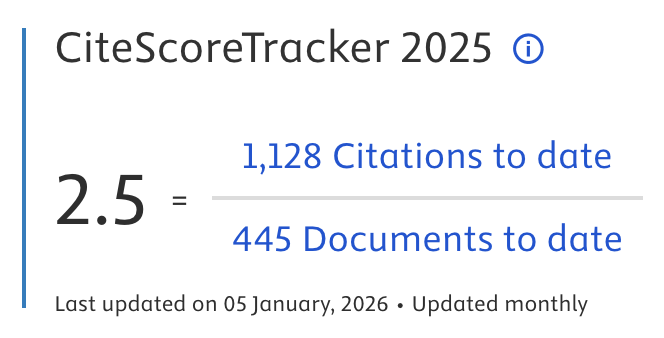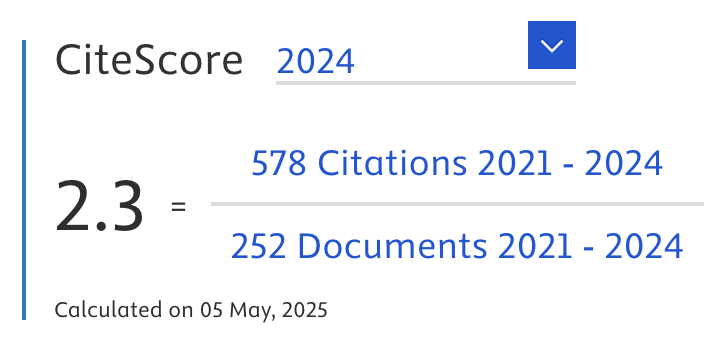Applying Quantitative and Data Analysis using Structural Equation Modeling for Accessing Factors Influencing Employee Loyalty
Abstract
This study aims to measure the impact of factors on the loyalty of employees at small and medium enterprises (SMEs) in Ho Chi Minh City through interviews with 640 surveys with a non-probability sampling method, a convenient approach. Quantitative analysis techniques used in the study include reliability analysis of the scale through Cronbah's Alpha index, exploratory factor analysis (EFA), confirmatory factor analysis (CFA), and Structural Equation Modeling (SEM).From the results of SEM analysis of the whole model, it is shown that the fit of the tested model is relatively high, satisfying the conditions that are CMIN = 1.975 < 3; RMSEA = 0.043 < 0.05; CFI = 0.924 > 0.9; GFI = 0.823 > 0.8, Pclose = 1.00 > 0.05; and Pvalue = 0.000 < 0.05. Besides, the SEM analysis results also show that independent factors(1) Opportunities for training and resource development; (2) Direct employee involvement; (3) Support from superiors and colleagues; (4) Environment and working conditions; (5) Salary, allowances, and benefits; (6) Fair rewards; (7) Alignment with organizational goals; (8) Level of empowerment; have a positive impact on employee job satisfaction at 1% significance level. At the same time, the job satisfaction factor in the employee's work positively impacts employees' loyalty to the organization at the 1% significance level. Accordingly, independent factors explain 72.10% of the change in job satisfaction in the employee's work; the remaining 37.90% of the change is explained by other factors. In addition, job satisfaction in employees' work explained 63.1% of the shift in employee loyalty to the organization, and 36.9% of the change was explained by factors other than the model. From the research results, the author proposes managerial implications to increase the loyalty of employees in SMEs.The study has some limitations: The study only surveyed 640 employees representing SMEs in HCMC, and the sample representativeness is not high. The governance implications are still qualitative, and obstacles to implementing the above impacts have not been assessed. The research sample uses a non-probability sampling method, so the representativeness of the study population is not high.
Article Metrics
Abstract: 782 Viewers PDF: 532 ViewersKeywords
Loyalty; Employee; Organization; Job; Satisfaction; SMEs and HCMC
Full Text:
PDF
DOI:
https://doi.org/10.47738/jads.v5i1.151
Citation Analysis:
Refbacks
- There are currently no refbacks.

Journal of Applied Data Sciences
| ISSN | : | 2723-6471 (Online) |
| Collaborated with | : | Computer Science and Systems Information Technology, King Abdulaziz University, Kingdom of Saudi Arabia. |
| Publisher | : | Bright Publisher |
| Website | : | http://bright-journal.org/JADS |
| : | taqwa@amikompurwokerto.ac.id (principal contact) | |
| support@bright-journal.org (technical issues) |
 This work is licensed under a Creative Commons Attribution-ShareAlike 4.0
This work is licensed under a Creative Commons Attribution-ShareAlike 4.0





.png)